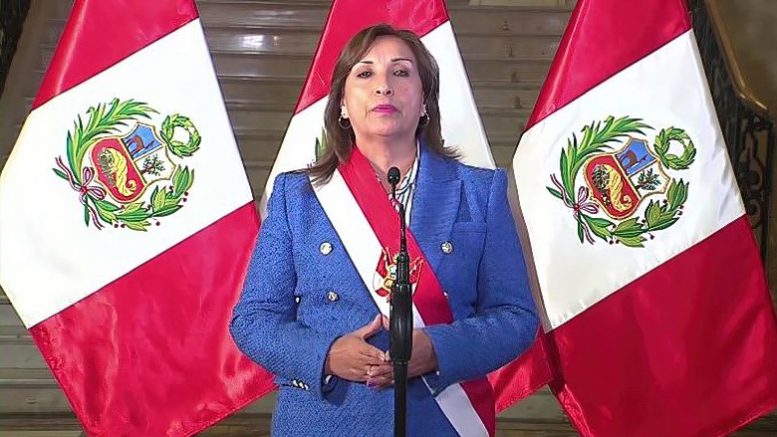It was unclear on Monday if protesters in Peru would abandon planned strikes and disruptions around mines run by Glencore (LSE: GLEN) and China-controlled MMG after new President Dina Boluarte promised elections two years early in 2024.
Boluarte announced the initiative after two protesters died on Sunday in widespread unrest following the Dec. 7 sacking of former President Pedro Castillo on charges of corruption and attempts to undermine the constitution. She also declared a state of emergency in areas of high conflict, allowing armed forces greater leeway to restore order.
Glencore’s Antapaccay and MMG’s Las Bambas mines are key operations in the world’s second-largest copper producer. Civil and Indigenous groups began strikes on Monday in the southern Apurimac region where Las Bambas is located. Organizers are planning a 24-hour national strike on Thursday, according to local media.
Local authorities ordered the Apurimac airport closed after a weekend attack, police said. Some national highways and regional roads are already blocked, while protesters are threatening more blockades that would stifle getting supplies to mines and copper to market.
Hundreds of thousands of demonstrators have taken to the streets in Lima, the capital, and the mostly rural Andean mining areas where former president Castillo was popular. Castillo, a former teacher and peasant farmer, survived two impeachment votes in Congress before he tried to avoid a third by dissolving Congress.
But even his supporters balked at the extreme power grab, and the legislature ousted him. Vice president Boluarte, a 60-year-old lawyer, took Castillo’s place last week.
Protests dent production
Unrest in the mining areas has been occurring for a while. MMG said in September the first-half performance at Las Bambas was significantly impacted by community protests that entered the site and required a 50-day shutdown. It said in first-half results it sold 104,437 tonnes of copper and 93,233 tonnes of zinc and achieved earnings before interest, tax, depreciation and amortization of US$651.7 million, 57% lower than the same period last year. Net profit after tax was US$89.8 million, it said.
Last month, MMG said it was working with the Tuntuma, Huincho, and Coyabamba communities to remove roadblocks.
On Monday, Glencore of Switzerland declined to comment while Melbourne-based MMG didn’t immediately reply to an email seeking comment sent after business hours.
Glencore’s Antapaccay mine had sales last year of US$1.69 billion from copper production of 171,000 tonnes and earnings before interest and taxes of US$751 million, according to the company.
Its other Peru operations include the Yauliyacu and Iscaycruz zinc mining units at Los Quenuales in Lima province, about one-third of the Antamina copper and zinc mine in Ancash region, and the Perubar concentrate warehouse and mixing plant at the port of Callao.
MMG’s Las Bambas, one of the world’s largest open-pit copper mines, hosts the Ferrobamba site with 850 million tonnes grading 0.64% copper, 2.9 grams silver per tonne, 0.05 gram gold and 190 parts per million (ppm) molybdenum; the Chalcobamba zone with 340 million tonnes grading 0.6% copper, 2.1 grams silver, 0.03 gram gold and 120 ppm molybdenum; and the Sulfobamba area with 180 million tonnes grading 0.62% copper, 5.7 grams silver, 0.02 gram gold and 140 ppm molybdenum.
President Boluarte told the nation in a speech on Monday she would present a bill to Congress “in the coming days” to move up the elections from 2026 when Castillo’s term would have ended. Prosecutors are investigating him for alleged corruption, conspiracy and rebellion.
The left-leaning former president was elected in July 2021 without political experience. His hands were shaking during his nationally televised bid to suspend Congress, rewrite the constitution and reorganize the judiciary.
The Economist has called Castillo’s presidency a bumbling, chaotic and inept administration from the outset, with five cabinet shuffles and a throughput of 80 ministers during his brief tenure.
Thirty years ago, President Alberto Fujimori had the support of the army to silence Peru’s Congress and rule for another eight years. No such luck this time, The Economist said, citing an aphorism from the apropos leftist Karl Marx: “History repeats itself as farce.”


Be the first to comment on "Glencore and MMG copper mines ride out unrest as Peru promises early polls "